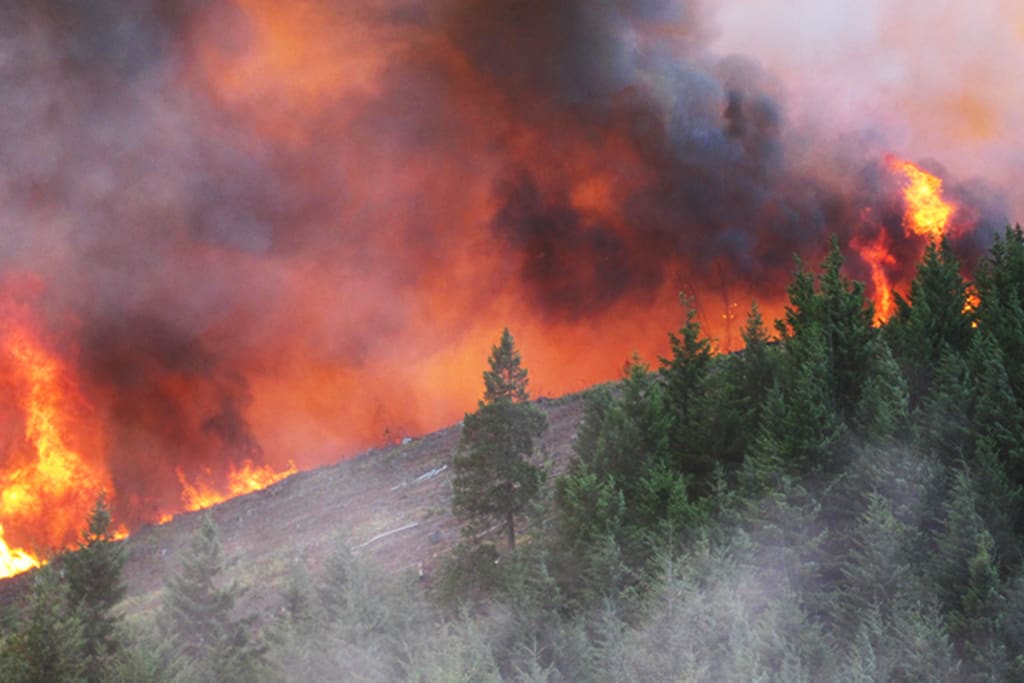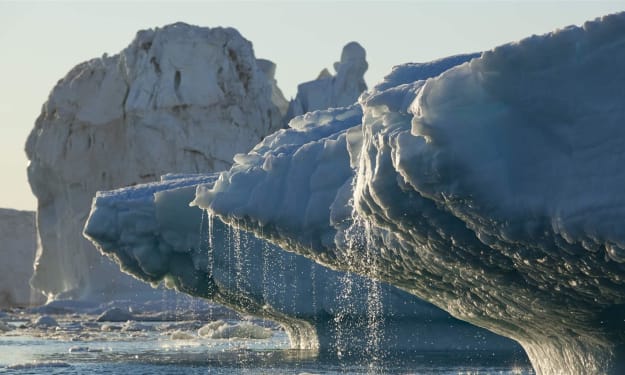The Climate Crisis in the Pacific Northwest: Impacts of Global Warming and Implications for the United States
How Rising Temperatures and Extreme Weather Events are Reshaping the Landscape and Economy of the Pacific Northwest

Introduction:
The Pacific Northwest region of the United States is known for its stunning natural beauty, diverse ecosystem, and vibrant economy. However, this region is increasingly vulnerable to the impacts of global warming. Rising temperatures, extreme weather events, and changing precipitation patterns are already reshaping the landscape and economy of the Pacific Northwest. This article will explore the impact of global warming on the Pacific Northwest and its implications for the United States.
Impact on the Environment:
The Pacific Northwest is home to a unique and diverse ecosystem, including forests, mountains, rivers, and coastlines. Rising temperatures and changing precipitation patterns are already impacting this ecosystem. For example, warmer temperatures are leading to melting glaciers and reduced snowpack, impacting water availability for agriculture, drinking water, and ecosystems. Changing precipitation patterns are also leading to more frequent and intense wildfires, impacting forests and the air quality of the region.
Impact on the Economy:
The Pacific Northwest has a thriving economy that includes agriculture, forestry, fishing, and tourism. However, the impacts of global warming are threatening these industries. For example, reduced snowpack and changing precipitation patterns are impacting water availability for agriculture, leading to reduced crop yields and increased water scarcity. The increased frequency and intensity of wildfires are impacting the forestry industry, causing economic losses and job losses. Additionally, changes in ocean chemistry and temperature are impacting fish populations, affecting the fishing industry in the region.
Impact on Indigenous Communities:
The Pacific Northwest is home to numerous indigenous communities who have lived on the land for thousands of years. These communities have a deep connection to the land and rely on its resources for their cultural practices and livelihoods. The impacts of global warming are threatening the way of life for these communities. For example, reduced snowpack and changing precipitation patterns are impacting the availability of traditional foods and medicines, while wildfires are damaging cultural sites and sacred lands.
Adaptation and Mitigation:
Adaptation and mitigation strategies can help to address the impacts of global warming on the Pacific Northwest. Adaptation involves making changes to infrastructure, policies, and practices to reduce the impact of climate change. For example, farmers can adapt their practices to changing water availability, such as investing in more efficient irrigation systems or changing crop types. Communities can also invest in alternative economic opportunities, such as renewable energy or eco-tourism, to reduce dependence on industries that are vulnerable to climate change impacts.
Mitigation involves reducing greenhouse gas emissions to slow the rate of global warming. This can include transitioning to renewable energy sources, reducing energy consumption, and implementing carbon pricing policies. These efforts can help to mitigate the long-term impacts of global warming on the Pacific Northwest and the wider environment.
Implications for the United States:
The impacts of global warming on the Pacific Northwest have significant implications for the United States. The region's economy, environment, and cultural heritage are closely linked to the wider economy and society of the country. The economic impacts of global warming on the region can lead to job losses and economic losses, which can have wider implications for the national economy. Additionally, the impacts on the region's environment and culture can have wider implications for the country's biodiversity and social fabric.
Conclusion:
The impacts of global warming on the Pacific Northwest are a pressing issue that requires immediate action. The impacts on the region's environment, economy, and cultural heritage highlight the urgent need for adaptation and mitigation strategies. By working together, we can develop solutions that balance the economic and ecological needs of the Pacific Northwest and protect the unique ecosystem and cultural heritage of the region. Additionally, efforts to reduce greenhouse gas emissions can help to mitigate the long-term impacts of global warming on the Pacific Northwest and the wider environment.
The Pacific Northwest is just one example of how global warming is reshaping the environment and economy of the United States. The impacts of global warming are felt across the country, from rising sea levels on the East Coast to more frequent and intense heatwaves in the Midwest. The urgent need to address global warming requires collective action, political will, and community engagement. The Pacific Northwest can serve as an example of how collaboration and partnership can help to address the impacts of global warming on the environment, economy, and culture of a region.
In conclusion, the impact of global warming on the Pacific Northwest is a pressing issue that requires immediate attention. Rising temperatures, changing precipitation patterns, and extreme weather events are already reshaping the landscape and economy of the region. The impacts on the environment, economy, and cultural heritage of the Pacific Northwest have wider implications for the United States. By employing adaptation and mitigation strategies, and working together towards collaborative solutions, we can help to protect the unique ecosystem and cultural heritage of the Pacific Northwest and the wider environment.





Comments
There are no comments for this story
Be the first to respond and start the conversation.